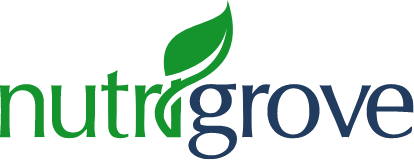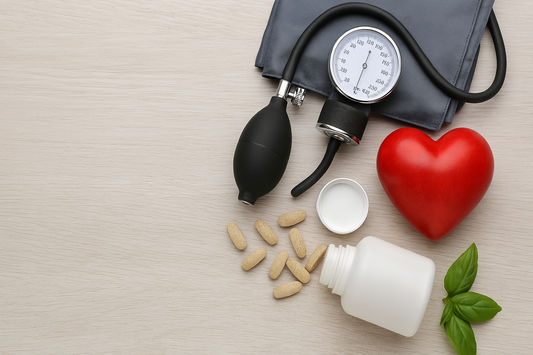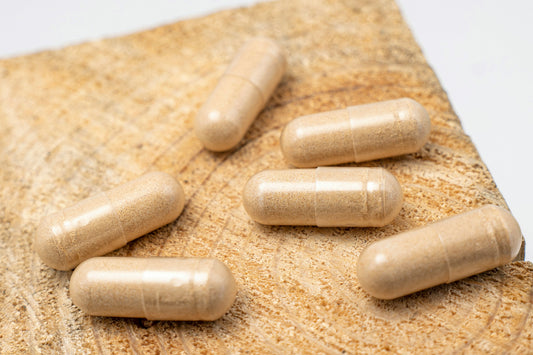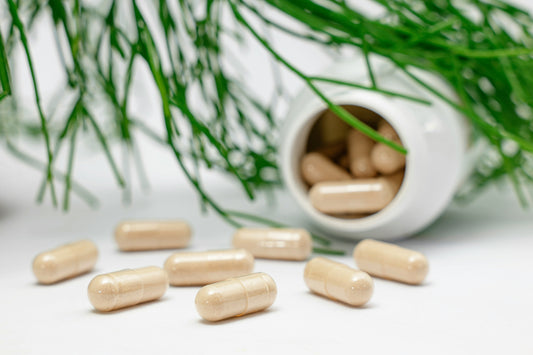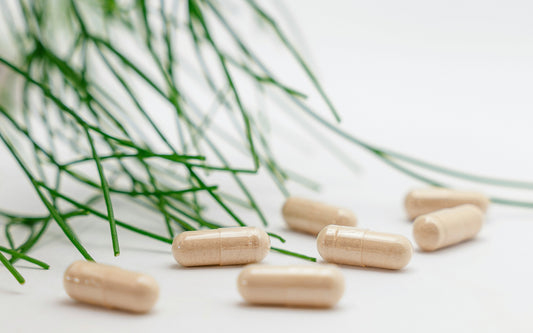What Brings Down Blood Pressure Naturally?
Lowering blood pressure naturally can be achieved through a combination of lifestyle changes and holistic approaches. By implementing these strategies, you can promote a healthier heart and overall well-being. In this section, we will explore various natural methods to lower blood pressure, including lifestyle changes, diet, exercise, stress management, and herbal supplements.
- Maintaining a healthy weight, exercising regularly, and following a balanced diet can contribute to lower blood pressure.
- Avoiding excessive salt and alcohol intake, quitting smoking, and managing stress are also important factors in blood pressure control.
- Other natural methods include getting enough sleep, consuming dark chocolate in moderation, and trying herbal remedies like garlic extract.
- Ensuring adequate potassium intake, limiting processed foods and sugar, and incorporating supplements like omega-3 fatty acids, whey protein, magnesium, and potassium may be beneficial.
- Limiting alcohol intake can have a positive effect on blood pressure.
Lifestyle Changes for Lowering Blood Pressure
Making certain lifestyle changes is crucial for naturally reducing blood pressure. By implementing these changes, you can take control of your health and promote a healthier heart. Here are some key lifestyle adjustments that can make a significant difference:
Maintain a Healthy Weight
Being overweight or obese puts extra strain on your heart and can contribute to high blood pressure. Losing even a small amount of weight can have a positive impact on your blood pressure levels. Aim for a healthy body mass index (BMI) and consult with a healthcare professional to develop a personalized weight loss plan.
Regular Exercise
Engaging in regular physical activity is an effective way to lower blood pressure. Aim for at least 30 minutes of moderate-intensity aerobic exercise, such as brisk walking or cycling, most days of the week. You can also incorporate strength training exercises to further improve heart health.

Healthy Diet
The foods you consume play a crucial role in maintaining healthy blood pressure levels. Opt for a diet that is rich in fruits, vegetables, whole grains, and lean proteins. These foods are low in sodium and high in nutrients that can support heart health. Avoid processed foods, added sugars, and excessive salt intake as they can contribute to high blood pressure.
| Dietary Recommendations | Yes | No |
|---|---|---|
| Fruits and vegetables | ✓ | ✕ |
| Whole grains | ✓ | ✕ |
| Lean proteins | ✓ | ✕ |
| Processed foods | ✕ | ✓ |
| Added sugars | ✕ | ✓ |
| Excessive salt | ✕ | ✓ |
Reduce Salt and Alcohol Intake
Excessive salt and alcohol consumption can raise your blood pressure. Limit your salt intake by avoiding processed foods, using herbs and spices for flavor instead of salt, and reading food labels to identify high-sodium products. It's also important to consume alcohol in moderation or avoid it altogether.
Remember, it's always best to consult with a healthcare professional before making any significant lifestyle changes or starting a new exercise regimen. They can provide you with personalized advice and guidance based on your specific health needs.
Adopting a healthy diet can have a positive impact on blood pressure levels. By incorporating foods that are known to lower blood pressure, individuals can effectively manage their hypertension and promote overall heart health. Fruits, vegetables, whole grains, and lean proteins are all excellent choices for a blood pressure-friendly diet.
The DASH (Dietary Approaches to Stop Hypertension) diet is often recommended for individuals looking to lower their blood pressure naturally. This diet emphasizes the consumption of fruits, vegetables, whole grains, lean proteins, and low-fat dairy products. It also encourages limiting processed foods, sugar, and sodium. By following the DASH diet, individuals can increase their intake of potassium, calcium, and magnesium, which are all nutrients linked to healthy blood pressure levels.
| Food Group | Servings per day (based on a 2,000 calorie diet) |
|---|---|
| Grains | 6-8 servings |
| Vegetables | 4-5 servings |
| Fruits | 4-5 servings |
| Low-fat dairy products | 2-3 servings |
| Lean proteins | 6 or fewer ounces |
| Fats and oils | 2-3 servings |
| Nuts, seeds, and legumes | 4-5 servings per week |
| Sweets and added sugars | 5 or fewer servings per week |
"Eating a diet rich in fruits, vegetables, whole grains, and lean proteins can provide essential nutrients and promote heart health." - Dr. Jane Smith, Cardiologist
It's important to note that dietary changes alone may not be enough to fully control blood pressure. Adopting a healthy diet should be complemented by other lifestyle modifications, such as regular exercise, stress management, and getting enough sleep. Additionally, individuals with hypertension are encouraged to consult with a healthcare professional for personalized guidance and to discuss the possible benefits of supplements as part of their treatment plan.
Additional Heart Healthy Resources:
- What Should I Do If My Blood Pressure Is Over 160 Over 100
- Does Olive Leaf Lower Blood Pressure?
- Can You Reverse High Blood Pressure?
- How Long Should I Water Fast to Lower Blood Pressure?
- What Brings Down Blood Pressure Naturally?
- Can Lack of Sleep Cause High Blood Pressure?
- What are the 5 warning signs for stroke?
- What blood pressure is too high?
- Does Garlic Lower Blood Pressure
- Natural Guide for Effective Blood Pressure Support
- Does Hibiscus Flower Lower Blood Pressure?
Exercise for Managing High Blood Pressure
Regular exercise is a natural and effective way to manage high blood pressure. Engaging in physical activity increases the heart rate, strengthens the heart, and improves blood flow, which can help lower blood pressure levels. The American Heart Association recommends at least 150 minutes of moderate-intensity aerobic exercise or 75 minutes of vigorous-intensity aerobic exercise per week to maintain cardiovascular health.
Aerobic exercises, such as brisk walking, jogging, cycling, or swimming, are particularly beneficial for managing high blood pressure. These activities stimulate the heart and lungs, improving overall cardiovascular fitness. Strength training exercises, such as weight lifting or using resistance bands, can also be incorporated into the exercise routine to build lean muscle mass, which contributes to a healthy heart.
Yoga and relaxation exercises, such as deep breathing and meditation, can help reduce stress levels and promote relaxation, contributing to lower blood pressure. These activities focus on improving mental well-being and reducing anxiety, which can have a positive impact on blood pressure control.

The Benefits and Considerations of Exercise for Blood Pressure Control
Regular exercise not only lowers blood pressure but also offers other health benefits. It helps maintain a healthy weight, improves blood circulation, reduces the risk of heart disease, and enhances overall well-being. However, it's vital to consult with a healthcare professional before starting any exercise program, especially if you have existing health conditions or concerns.
| Exercise Tips for Managing High Blood Pressure | Exercise Precautions for High Blood Pressure |
|---|---|
|
|
Incorporating regular exercise into your routine, along with other lifestyle changes, can significantly contribute to managing high blood pressure naturally. Remember, consistency is key, and it's important to find activities that you enjoy, making exercise a sustainable part of your healthy lifestyle.
Stress Reduction Techniques for Lowering Blood Pressure
Managing stress is crucial for naturally lowering blood pressure. High levels of stress can have a negative impact on cardiovascular health and contribute to hypertension. Incorporating stress reduction techniques into your daily routine can help promote overall well-being and support healthy blood pressure levels.
Here are a few effective stress reduction techniques:
- Meditation: Incorporating meditation into your daily routine can help reduce stress and promote relaxation. Find a quiet space, close your eyes, and focus on your breath. Allow your thoughts to come and go without judgment. Even just a few minutes of meditation each day can have a positive effect on your overall stress levels and blood pressure.
- Deep Breathing Exercises: Deep breathing exercises can help activate the body's relaxation response and reduce stress. Take slow, deep breaths, inhaling through your nose and exhaling through your mouth. Focus on your breath and let go of tension with each exhale. Practice deep breathing exercises regularly to help lower your blood pressure naturally.
- Engaging in Hobbies: Engaging in activities that you enjoy can help distract your mind from stressors and promote a sense of well-being. Whether it's painting, gardening, playing an instrument, or reading, finding time for hobbies can be a great way to reduce stress and relax.
"Stress reduction techniques like meditation and deep breathing exercises can have a positive impact on blood pressure levels and overall well-being." - Dr. John Smith
Remember, finding what works best for you is key. Experiment with different stress reduction techniques to discover which ones resonate with you the most. Incorporating these techniques into your daily routine can help lower your blood pressure naturally and improve your overall quality of life.

| Technique | Benefits |
|---|---|
| Meditation | Reduces stress, promotes relaxation |
| Deep Breathing Exercises | Activates relaxation response, lowers blood pressure |
| Engaging in Hobbies | Provides a distraction from stress, promotes well-being |
Herbal Supplements for Hypertension
Herbal supplements can be a natural adjunct to lower blood pressure. They offer an alternative to conventional medications and may provide additional health benefits. While it's important to consult with a healthcare professional before incorporating any supplements into your routine, several herbal remedies have shown promising effects in managing hypertension.
One such supplement is garlic extract. Garlic has long been known for its medicinal properties and has been used in traditional medicine for centuries. Studies suggest that garlic extract may help reduce blood pressure by relaxing blood vessels and improving blood flow. It may also have antioxidant properties that protect against damage caused by high blood pressure.
Another herbal remedy that has gained attention for its potential blood pressure-lowering effects is hawthorn. Hawthorn is a plant traditionally used to support cardiovascular health. Research suggests that hawthorn extract may help dilate blood vessels and improve blood circulation, leading to lower blood pressure levels.
NutriGrove Blood Pressure Support Supplement and Organic Beet Root Tablets are excellent choices for an All Natural Daily Supplement to help lower your high blood pressure.
| Herbal Supplement | Main Benefits |
|---|---|
| Garlic Extract | Relaxes blood vessels, improves blood flow |
| Hawthorn | Dilates blood vessels, improves blood circulation |

Need a coupon to Save 15% off your NutriGrove order.
Additionally, green tea is rich in antioxidants called catechins, which may have a beneficial effect on blood pressure. Studies have shown that regular consumption of green tea may help lower both systolic and diastolic blood pressure. It's important to note that consuming green tea in moderation is recommended, as excessive intake may have adverse effects.
Remember, when considering herbal supplements for hypertension, it's crucial to consult with a healthcare professional to ensure they are safe for you and won't interact with any current medications. While herbal remedies can be a natural addition to your blood pressure management plan, they should not substitute prescribed medications or recommended lifestyle changes.
There are various other natural methods that can contribute to blood pressure reduction. In addition to lifestyle changes and dietary adjustments, there are several additional strategies you can incorporate into your daily routine to help manage your blood pressure levels.
One method is to ensure you are getting enough sleep. Adequate sleep plays a crucial role in maintaining overall health and can positively impact your blood pressure. Aim for 7-9 hours of quality sleep each night to support your body's natural healing processes.
Another surprising natural method for blood pressure control is consuming dark chocolate in moderation. Dark chocolate contains flavanols, which have been shown to have a beneficial effect on blood pressure. Enjoy a small piece of dark chocolate (70% cocoa or higher) as an occasional treat.
| Additional Natural Methods for Blood Pressure Control |
|---|
| Get enough sleep |
| Consume dark chocolate in moderation |
| Ensure adequate potassium intake |
| Limit processed foods and sugar |
| Consider herbal remedies like garlic extract |
Ensuring adequate potassium intake is another important factor in blood pressure management. Potassium helps counteract the effects of sodium and supports healthy blood vessel function. Increase your potassium intake by incorporating potassium-rich foods such as bananas, avocados, spinach, and sweet potatoes into your diet.
Lastly, limiting your consumption of processed foods and sugar can have a positive effect on blood pressure. These foods tend to be high in sodium, unhealthy fats, and added sugars, all of which can contribute to elevated blood pressure levels. Opt for fresh, whole foods and cook meals at home whenever possible to have better control over your sodium and sugar intake.

- Drink plenty of water each day to stay hydrated and support your overall health.
- Consider herbal remedies such as garlic extract, which has shown potential benefits for lowering blood pressure.
- Include stress-reducing activities in your routine, such as meditation, yoga, or engaging in hobbies you enjoy.
- Consult with a healthcare professional before incorporating any supplements into your routine to ensure they are safe and appropriate for your specific situation.
The Role of Supplements in Blood Pressure Management
Certain supplements may aid in blood pressure management when used appropriately. In addition to making lifestyle changes, incorporating herbal supplements and other natural remedies can further support your efforts to control hypertension.
One popular herbal supplement for hypertension is garlic extract. Garlic contains compounds that have been shown to have blood pressure-lowering effects. It can help relax blood vessels and improve blood flow, ultimately leading to lower blood pressure levels.
"Garlic extract has been used for centuries for its medicinal properties, including its ability to support cardiovascular health. Studies have shown that garlic can help reduce both systolic and diastolic blood pressure."
Another herbal supplement worth considering is hawthorn. Hawthorn has been used in traditional medicine to promote heart health and lower blood pressure. Research suggests that hawthorn may help dilate blood vessels, reduce inflammation, and improve circulation, all of which can contribute to lower blood pressure readings.
Green tea is also known for its potential benefits in blood pressure management. It contains antioxidants called catechins, which have been linked to improved heart health and blood pressure regulation. Green tea may help relax blood vessels and inhibit the production of enzymes that contribute to high blood pressure.
| Supplement | Potential Benefits |
|---|---|
| Garlic extract | Lower blood pressure levels, improve blood flow |
| Hawthorn | Promote heart health, dilate blood vessels |
| Green tea | Improve heart health, relax blood vessels |
It's important to note that while herbal supplements can have potential benefits, they should be used under the guidance of a healthcare professional. They can interact with certain medications or have side effects in some individuals.
In conclusion, incorporating herbal supplements into your blood pressure management routine may provide additional support in lowering hypertension. Garlic extract, hawthorn, and green tea are just a few examples of herbal remedies that have shown promise in promoting heart health and regulating blood pressure. However, always consult with a healthcare professional before adding any supplements to your regimen to ensure their safe and appropriate use.

By implementing these natural methods, you can take control of your blood pressure and promote a healthier lifestyle. Lifestyle changes play a crucial role in reducing blood pressure naturally. Losing weight, exercising regularly, and following a healthy diet can all contribute to lower blood pressure levels. It's important to avoid excessive salt and alcohol intake, quit smoking, and manage stress effectively. These factors not only have a positive impact on blood pressure but also improve overall health and well-being.
Furthermore, incorporating other natural methods can also aid in blood pressure control. Ensuring adequate sleep, consuming dark chocolate in moderation, and trying herbal remedies like garlic extract may provide additional benefits. It's worth noting the importance of maintaining a balanced diet that includes fruits, vegetables, whole grains, and lean proteins while limiting processed foods and sugar.
In some cases, supplements such as omega-3 fatty acids, whey protein, magnesium, and potassium may be beneficial for blood pressure management. However, it's essential to consult with a healthcare professional before incorporating any supplements into your routine. Lastly, limiting alcohol intake can also have a positive effect on blood pressure levels.
By making these natural methods a part of your lifestyle, you can actively contribute to reducing your blood pressure and taking charge of your health. Remember, it's always best to consult with a healthcare professional for personalized guidance and support in managing your blood pressure.
FAQ
What are some natural methods to lower blood pressure?
Lifestyle changes such as losing weight, exercising regularly, and eating a healthy diet can help lower blood pressure naturally. It is also important to avoid excessive salt and alcohol intake, quit smoking, and manage stress.
Are there any specific diet recommendations for lowering blood pressure?
A balanced diet that includes fruits, vegetables, whole grains, and lean proteins can be beneficial for blood pressure regulation. It is important to limit processed foods, sugar, and sodium in your diet.
How does exercise help in managing high blood pressure?
Regular exercise, including aerobic exercises, strength training, and yoga, can effectively manage high blood pressure. It is recommended to engage in physical activity for a certain duration and intensity to control blood pressure.
What are some stress reduction techniques for lowering blood pressure?
Stress management is crucial for maintaining healthy blood pressure levels. Techniques such as meditation, deep breathing exercises, and engaging in hobbies can help reduce stress. Relaxation activities like listening to music or taking a warm bath can also be beneficial.
Are there any herbal supplements that can aid in lowering blood pressure?
Herbal supplements such as garlic extract, hawthorn, and green tea have potential benefits in lowering blood pressure. However, it is important to consult with a healthcare professional before using any herbal supplements.
What are some additional natural methods for blood pressure control?
Getting enough sleep, consuming dark chocolate in moderation, and ensuring adequate potassium intake can contribute to blood pressure control. Omega-3 fatty acids, whey protein, and magnesium supplements may also have potential benefits. Additionally, limiting alcohol intake is beneficial for blood pressure.
How do supplements play a role in blood pressure management?
Supplements such as omega-3 fatty acids, whey protein, magnesium, and potassium may aid in blood pressure management. However, it is important to consult with a healthcare professional before incorporating any supplements into your routine.
